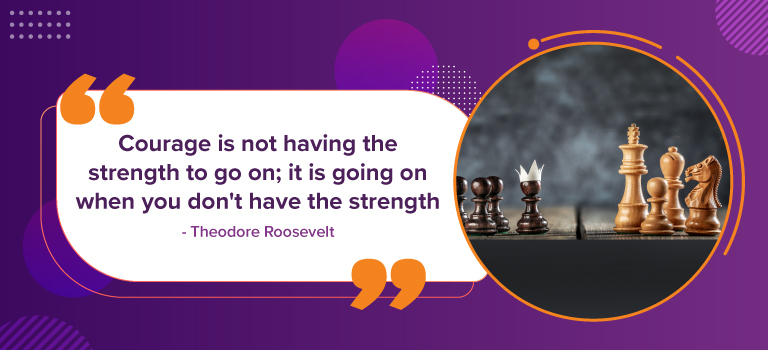
TABLE OF CONTENTS
1. Indo-French Workshop on Clean & Sustainable Energy Technologies (INFINITE) 2. Annual Defence Dialogue 3. Comprehensive Group Standards for Millets 4. Lab Grown Diamonds (LGD) 5. NTPC - Ranked No. 1 Globally by S&P Platts

1. Indo-French Workshop on Clean & Sustainable Energy Technologies (INFINITE)
Syllabus – GS2, International Relations; Bilateral Relations
Prelims – INFINITE
Context – Dr S. Chandrasekhar, Secretary, Ministry of Science and Technology inaugurated the
Indo-French Workshop on Clean & Sustainable Energy Technologies at CSIR-National Physical Laboratory, New Delhi.
Details –
- The objective of the INFINITE workshop is to bring together researchers, experts, industry leaders, and policymakers to exchange knowledge and best practices on the development and deployment of clean and sustainable energy technologies.
- The topics for discussion include – Hydrogen Energy, Solar Energy, Carbon Capture Utilisation and Storage (CCUS), Electrochemical Energy Storage and Clean Fuels.
- The event has been organised by CSIR – Central Institute of Mining and Fuel Research (CIMFR), Dhanbad and the French National Centre for Scientific Research (CNRS), France and is supported by the Indo-French Centre for the Promotion of Advanced Research (CEFIPRA).
- India calls for greater cooperation with France in the area of Clean Energy. India’s renewable sector ranks 4th in the world and solar energy is the most abundant source of renewable power in the country. India is expected to generate 2,100 GW of solar energy using the Thar Desert as the site.
- The National Fuel Policy aims to achieve 20% blending of petrol with ethanol; and 5% blending of biodiesel in diesel by 2030.
Also read – National Policy on Biofuels.
Syllabus – GS2, International Relations; Bilateral groupings and agreements involving India and/or affecting India’s interests.
Prelims – 7th Annual Defence Dialogue between India and Sri Lanka.
Context – The 7th Annual Defence Dialogue between India and Sri Lanka was held in New Delhi.
Details –
- The Defence Secretary and his Sri Lankan counterpart reviewed the ongoing defence cooperation activities between the two countries and both sides agreed to increase the complexity of bilateral exercises. Also, both sides reaffirmed their commitment to avail maximum benefits from each other’s experiences and capacities.
- The Annual Defence Dialogue is the highest institutionalised interactive mechanism between India and Sri Lanka. The armed forces of both countries continue to seek bilateral cooperation in multiple fields and increased engagements are a positive sign for future bilateral relations.
Also read – India – Sri Lanka Relations.
3. Comprehensive Group Standards for Millets
Syllabus – GS3, Economy; Marketing of Agricultural Products
Prelims – International Year of Millets, 2023; FSSAI specifies group standards for millets.
Context – FSSAI specifies comprehensive group standards for 15 types of millets.
Details –
- The Food Safety and Standards Authority of India (FSSAI) has specified the comprehensive group standard in the Food Safety and Standards (Food Products Standards and Food Additives) Second Amendment Regulations, 2023. These will be enforced from September 1. The standardisation is part of the government’s efforts to boost the use of millets in the ongoing International Year of Millets.
- Currently, individual standards for only a few millets like Sorghum (Jowar), Finger Millet (Ragi), Whole & decorticated Pearl Millet Grain (Bajra) and Amaranth are prescribed in the Food Safety and Standards (Food Product Standards and Food Additives) Regulations, 2011.
- FSSAI has now framed a comprehensive group standard for 15 types of millets specifying 8 quality parameters – uric acid content, extraneous matter, other edible grains, maximum limits for moisture content, weevilled grains, and immature and shrivelled grains to ensure the availability of good quality millets in domestic and international markets.
Syllabus – GS3, Science and Technology; Achievements of Indians in science & technology; indigenization of technology and developing new technology.
Prelims – Union Budget 23-24, Lab Grown Diamonds (LGD)
Context – InCent-LGD at IIT Madras.
Details –
- To encourage the indigenous production of Lab Grown Diamonds machinery, seeds and recipe, the Union Budget 2023-24 announced a five-year research grant.
- The proposal is to establish an India Centre for Lab Grown Diamonds (InCent -LGD) at IIT Madras with an estimated cost of Rs 242.96 cr over five years.
- The aim of this project is to provide technical assistance to the industries, and entrepreneurs in the country to promote indigenous manufacturing of both Chemical Vapour Deposition (CVD) and High Pressure and High Temperature (HPHT) systems along with the recipes for expanding the Lab Grown Diamond (LGD) business.
- The gems and jewellery sector contributes 9% to India’s total merchandise export and therefore LGD will play a significant role in fueling the country’s economic growth.
- Besides the jewellery industry, LGDs are used in 5G networks, computer chips, and satellites. LGDs have vast applications in the area of defence, space, optics, jewellery, thermal and medical industries.
- The Lab Grown Diamond jewellery market is expected to rise rapidly to $5 billion by 2025 and exceed $15 billion by 2035.
Read more about lab-grown diamonds in the linked article.
5. NTPC – Ranked No. 1 Globally by S&P Platts
Syllabus – GS3, Infrastructure – Energy.
Prelims – NTPC Ltd.
Context – NTPC Ltd ranked No.1 Globally by S&P Platts.
Details –
- The National Thermal Power Corporation (NTPC) has been ranked No. 1 among Independent Power Producers and Energy Traders globally in the S&P Global Commodity Insights Top 250 Global Energy Company Rankings®-2022.
- These rankings are based on four key metrics – asset worth, revenues, profits and return on investment.
- NTPC Limited is India’s largest power-generating company and contributes 24% of the total electricity produced in the country.
- NTPC targets non-fossil fuel-based capacity to make 50% of the company’s portfolio by 2032.
Read the previous PIB articles here.
February 23rd, 2023, PIB:- Download PDF Here
| Related Links | |||
| India France Relations | Ethanol Blended Petrol Programme [E20 Fuel] | ||
| 5G | Ethanol Blending | ||
| Digital Divide In India | Pahari Paintings | ||

Comments